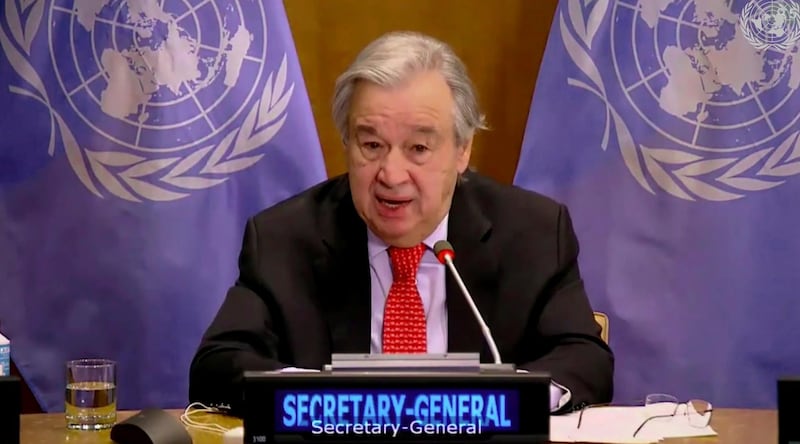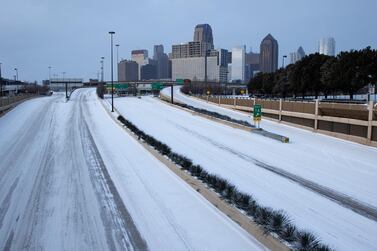The UN on Thursday warned that mankind’s “war on nature” was wiping out whole species, polluting the atmosphere and pushing temperatures up by a dangerous 3 degrees Celsius this century.
A report, Making Peace with Nature, presents evidence of three dangers – climate change, pollution, and the loss of plant and animal species, or biodiversity – and explains how to mitigate this triple threat.
The 168-page study also features new findings on the emergence of Covid-19 and other so-called zoonotic diseases, which are linked to mankind encroaching ever deeper into forests and other animal habitats.
“For too long, we have been waging a senseless and suicidal war on nature,” UN Secretary General Antonio Guterres told reporters.
“The bottom line is that we need to transform how we view and value nature. We must reflect nature’s true value in all our policies, plans and economic systems.”
The report was released amid the latest example of headline-making harsh weather – a winter storm across the southern US that brought deadly freezing winds, snow and ice to areas that seldom see such frigid conditions.
It paints a bleak picture of a planet struggling to support an ever-growing population that extracts coal, oil and other resources, destroys habitats and pumps out heat-trapping gases that raise the odds of storms, forest fires and sea-level rise.
More than 1 million of Earth’s estimated 8 million plant and animal species are close to extinction, while pollution causes the early deaths of some 9 million people each year, said Mr Guterres.
Worse still, the planet is headed for at least 3°C of global warming this century, he added.
This is far above the targets agreed in the 2015 Paris accord, which aimed to keep global warming under 2°C over pre-industrial times and to strive to limit temperature rises to 1.5°C.
Mr Guterres said there was still time to get back on track.
The US will on Friday re-enter the Paris climate deal, after President Joe Biden reversed a decision by his predecessor, Donald Trump, to exit the accord, raising hopes of greater global momentum on emissions cuts.
The UN chief will mark the re-entry at a virtual event with Mr Biden’s climate envoy John Kerry.
Washington is now committed to effectively cutting carbon emissions to zero by 2050.
That means “countries producing two-thirds of global carbon pollution are pursuing the goal of carbon neutrality by 2050,” said Mr Guterres.
“If adopted by every country, city, financial institution and company around the world, a global coalition for carbon neutrality by 2050 can still prevent the worst impacts of climate change.”
British Prime Minister Boris Johnson will on February 23 chair virtual UN Security Council talks on the links between climate change and war.
The UK will in November host the review conference of the Paris agreement in Glasgow.
Inger Andersen, executive director of the UN Environment Programme, Unep, said public pressure and bold policymaking could galvanise efforts to cut carbon emissions and raise cash to innovate our way out of a looming catastrophe.
“In showing how the health of people and nature are intertwined, the Covid-19 crisis has underlined the need for a step-change in how we view and value nature,” said Ms Andersen.
“Green recovery plans for pandemic-hit economies are an unmissable opportunity to accelerate the transformation.”







